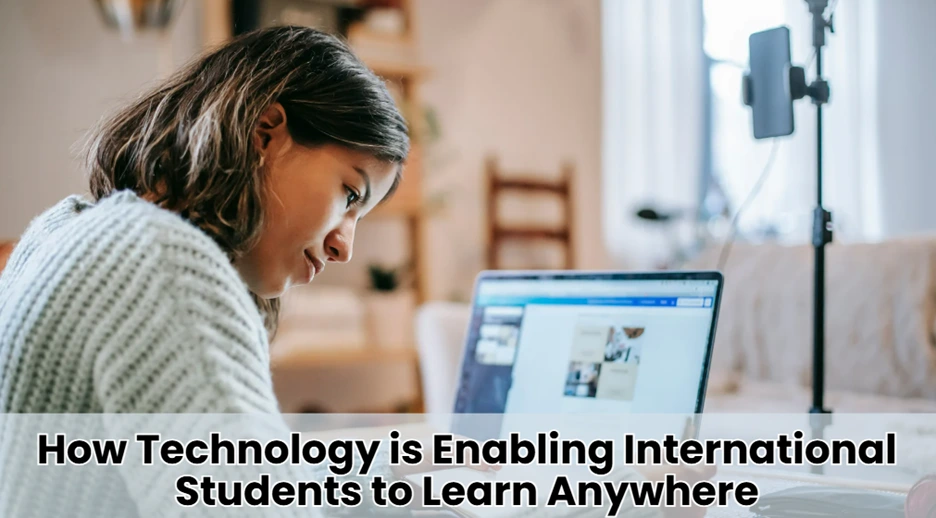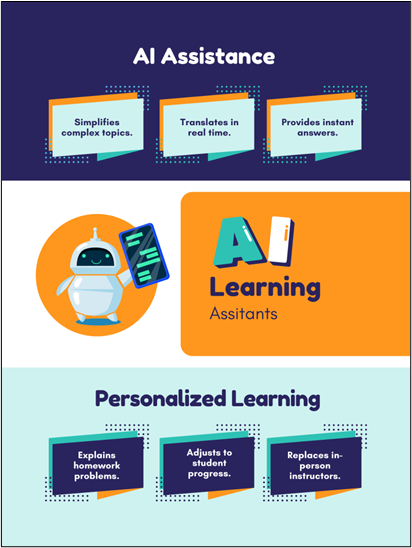How Technology is Enabling International Students to Learn Anywhere
Can geographical distance hinder learning? Imagine a classroom without walls, where learning happens in homes, during travel, or even in a park. This isn’t the setting of a futuristic movie but the reality of today’s educational platform. In an era where technology bridges gaps across continents, it has also transformed the traditional concept of education.
Gone are the days when children were bound by geographical constraints or limited by access to quality education. Now, the digital age has ushered in limitless possibilities where young minds can explore, learn, and grow in safe, virtual environments tailored just for them. But how exactly does this happen?
Let’s dive into the technological advancements that are not just enhancing education but revolutionizing it for children around the globe.

Online Learning Platforms
Education is no longer confined to physical classrooms. Online learning platforms specifically designed for young learners allow them to engage in lessons, complete assignments, and interact with teachers without the need for physical presence. Many schools across the globe now offer programs through these platforms, which are crafted with children’s safety and educational needs in mind.
Students can now tap into resources from prestigious institutions, often at minimal cost. This eliminates the cost of the student having to travel to a place; acquiring visas, accommodation, and the rest. Traditional universities also offer remote access, allowing students to attend classes from their home countries.
Virtual Classrooms and Collaboration Tools
Effective learning involves active communication, which virtual classrooms facilitate by allowing real-time interactions. These platforms are equipped with safety features to protect young users and provide a space where they can connect with classmates and teachers safely. This setup mirrors the traditional classroom environment but with enhanced security and accessibility.
There are some teamwork assistants for students to perform group work outside the physical confines. In this manner, international students can interface, share ideas, and perform assignments effectively through these tools. Technology bridges the gaps between distance and education to make learning more engaging and interactive.
One pivotal technology facilitating this shift is the travel esim, enabling students to effortlessly maintain reliable internet connections. This tool ensures seamless access to online courses, resources, and communication tools with educators and peers, regardless of the student’s physical location.
With consistent connectivity, international students can participate in real-time interactive classes and engage in global student forums, fully embodying the modern educational experience. Thus, technology, especially that which supports connectivity like travel esims, breaks down geographical barriers to educational opportunities.
AI-Powered Learning Assistants

With the help of AI technology, personalized learning environments are created to cater to the unique needs of each student. These tools assist young learners in understanding complex subjects through real-time help and language support, making learning accessible regardless of linguistic or geographical barriers.
AI also customizes the experience of learning. Systems review the student’s progress and present specific lessons or exercises according to the student’s strengths and weaknesses. Therefore, even though international students cannot have an instructor whom they can see, this helps them get much-needed support.
Language Learning Apps
Language is the primary problem that international students face. Facing language challenges, especially in international contexts, language learning apps equipped with child-friendly interfaces offer interactive lessons and pronunciation practice. These apps are designed to be engaging and supportive, allowing learners to advance at their own pace.
Such apps have interactive lessons, pronunciation guides, and real-life conversation practice. Most importantly, these apps work on flexible schedules of learning so that students can learn according to their comfort and improve their language skills easily before or after coming for their studies. Some also give AI-driven speech recognition for polishing pronunciation.
Digital Libraries and Research Databases
Students should have a library of academic information. International students would depend on books, which were either too expensive or not available in their home country. Today, through digital libraries and research databases, millions of books, journals, and articles are available online.
Students can get access to research at any given time through searching apps. Digital collections in university libraries also permit students to take electronic books and other materials home remotely, so international students will have everything they need no matter where they are.
Mobile Learning and Educational Apps
The convenience of mobile technology allows educational content to be accessed on smartphones and tablets, enabling learning anytime, anywhere. Educational apps for subjects like science, math, and literature are tailored to be kid-friendly and secure, ensuring that young learners can study in a safe digital environment.
Other subject-specific apps are there for science, math, coding, and business studies. Step-by-step lesson plans will ensure students learn how to do something new. Such flexibility helps international students fit learning into their lives regardless of their location.
Cloud Computing for Easy Access
Cloud computing will enable easily accessible ways of storing and sharing academic material among international students. The services of some applications allow such students to keep important files safely online instead of keeping them on physical drives. This creates an opportunity wherein they can check their notes from one device anywhere in the world.
Other students can use cloud-based tools to share their work with their peers and lecturers. Group work, document sharing, and simultaneous editing are done through cloud-based tools. In this way, the students can work together and maintain contact even as they learn from different places.
Virtual and Augmented Reality in Learning
Virtual reality and augmented reality are making education more immersive. International students can now experience realistic simulations, virtual labs, and 3D learning environments from their homes.
For example, a surgeon may use VR simulation to practice surgery. An engineering student may explore models of machines and structures in a virtual world. Even history students can take a virtual tour of ancient sites. Such technologies breathe life into the subjects, hence making learning engaging and interactive.
Remote Internships and Networking
Even young students can benefit from early career exploration through remote internships and virtual networking opportunities designed for their age group. These experiences are curated to ensure safety and appropriateness for children.
In addition, it is much easier to connect. It is possible to reach one’s potential employer for students via online job websites. Connection with professional networks and building a career are eased through webinars, virtual fairs, or online workshops by students.
Limitations and Prospects for Further Development
While technology has eased learning for international students, it is not all smooth sailing. Not all of them have fast internet, which makes online learning challenging. Some countries restrict access to certain websites and platforms, limiting students’ resources.
There is still room for improvement. More universities are investing in digital infrastructure and providing better online resources to students in other parts of the world. Companies are further polishing these learning platforms with enhanced features, adding offline access and data-saving modes as well.
Conclusion
Technology has transformed the landscape of education, allowing it to transcend geographical and economic barriers. Young learners can now access safe, engaging, and high-quality education from anywhere in the world.
As technology continues to evolve, it promises to further democratize access to learning opportunities, ensuring every child can achieve their educational potential in a secure digital space. Barriers to education are being slowly removed so that knowledge becomes available to any person anywhere in the world.
FAQs
How does technology help international students stay organized?
Technology provides digital planners, calendar apps, and task management tools that help students track deadlines, schedule study sessions, and manage assignments efficiently.
Can international students take exams remotely with technology?
Yes, many universities use online proctoring services and secure exam platforms that allow students to take tests from anywhere while ensuring academic integrity.
How do universities support international students with tech-related issues?
Many institutions offer IT support, online help desks, and troubleshooting guides to assist students with accessing learning platforms, fixing connectivity issues, and using digital tools effectively.










